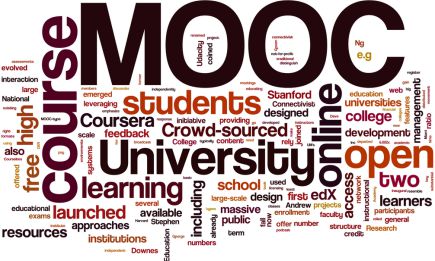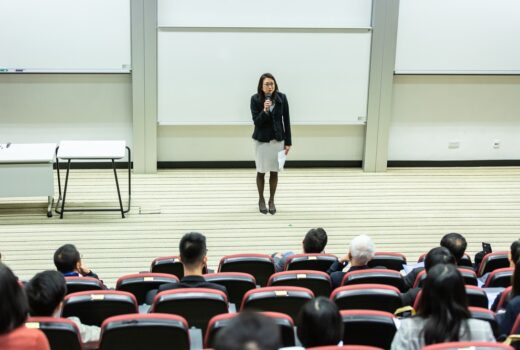Hope, hype or tsunami

You have pointed out that ‘the coming of the MOOC’ is not the revolution some predict it to be. Why not?
“MOOCs themselves are not a paradigm shift. They offer a most interesting new feature of open education, no doubt. As do Open Courseware and Open Educational Resources. What MOOCs do however is no less important: they cause a paradigm shift to happen.”
How does this happen then?
“The development and practice of MOOCs make people think differently about what higher education is, and how it is structured and delivered to students and society at large. In particular the elite universities start scratching their heads about the impact of MOOCS.
Everyone can now see and evaluate what they are offering and sometimes the quality and reputation of this gets questioned. That is most healthy, of course!”
But the academic comfort zone gets challenged suddenly by these new, transparent methods to offer content and education trajectories. That’s what I hear you implying…
“Indeed it does. The comfort zone of the great institutions is no longer self-evident. They have to get out of it and some do not like it. The other HE-institutions are not so challenged by the way, because they never had such a comfort zone.”
The MOOC revolution has come nonetheless from major universities, like OER has come from MIT. Some of them obviously didn’t care that much about their comfort zone?
“These initiatives were not institutional from these elite universities, but were things individual scientist and professors simply liked to try. In particular computer scientists who could more less do things they fancied to endeavor.
The whole idea of open education and MOOCs was not new in itself, but it needed a certain technological and educational level of innovation and critical mass. It was like Mount Everest for such scientists: it was there and you just climb it because of that.”
Now Everest has been climbed and all mountaineers of higher education are hiking upwards. Will universities embrace this soon?
“The management, the conservative forces of regulation do not like it one bit. Imagine, any student or ‘normal person’ from anywhere can take our courses, can access to our exclusive knowledge and teachings! And, even worse, they can do so without paying exclusive fees or anything like that.
Here we reach the crucial point, I guess. This is what here at the NVAO and with ECA is put on the agenda, not a moment too soon. When open education, such as MOOCs, will start to bring in funding, will generate revenue the debate will transform. That’s where MOOCs can and will generate this paradigm shift we discussed before.
The solid ‘money maker’ for institutions of higher education is the validation of the results of their students. Participants pay tuition for reaching a validated, value diploma. Students want to receive recognition for their efforts in education. When MOOCs will start to contribute to this, when through recognition they will add to the generation of revenue they will be unstoppable. Therefore a thorough analysis and debate about the validation and recognition of MOOCs as higher education delivery is crucial.
Remember: MOOCs are not higher education now! As long as we do not combine their content and teaching with validation and recognized results MOOCs are interesting offers a university can do, but they are in themselves not ‘higher education’. This should be remembered when we talk about MOOCs as a hype, or as a great hope or a threatening tsunami.”
Sir John Daniel’s essay for the ECA and NVAO seminar: ‘MOOCs: a paradigm shift in learning and quality assurance?’ can be read here.
Meest Gelezen
Vrouwen houden universiteit draaiende, maar krijgen daarvoor geen waardering
Wederom intimidatie van journalisten door universiteit, nu in Delft
Hbo-docent wil wel rolmodel zijn, maar niet eigen moreel kompas opdringen
‘Burgerschapsonderwijs moet ook verplicht worden in hbo en wo’
Raad van State: laat taaltoets nog niet gelden voor hbo-opleidingen


